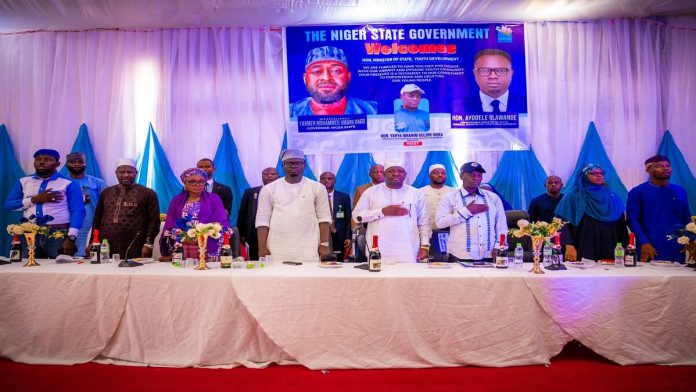News in Brief:
– Niger state’s governor, Muhammed Bago, seeks to involve both formal and informal youth sectors in his Green Economy initiative, targeting 4.5 million hectares of land cultivation.
– Youths had expressed concerns about access to resources and inclusion, while the government highlighted its commitment to youth participation and skills development.
Nigeria’s Niger state governor, Muhammed Umar Bago, has called on the youths to actively participate in its Green Economy and Food Security initiative. This was revealed during an engagement with the youths of the state, at the Idris Legbo Kutigi International Conference Centre Minna.
Nigeria’s minister of state for youth development, Ayodele Olawande, who was in the state at the invitation of the state government, enjoined youths to take advantage of several government initiatives. These include; the Nigerian Youth Academy (NiYA), an online learning platform; the Nigerian Youth Helpdesk; the Youth in Entertainment (YiE) initiative; the Corprenuer Support Scheme; as well as other youth-centered executive bills.

Also, Olawande took time to motivate and encourage the youth to believe in themselves, emphasising that ‘nothing is unachievable, provided there is required unity and sense of purpose.’
Engaging formal and informal youth sectors
Responding, the state’s deputy governor, Comrade Yakubu Garba, who represented the governor, noted the importance of including both formal and informal youth sectors in the initiative.
Garba stressed the importance of Niger state’s ambitious plan of cultivating vast expanses of land in ensuring food security for the state and the country.
Additionally, he stressed the value of organisations like road transport unions, trade-crafts unions, and voluntary groups, calling for their incorporation into the structure of the National Youth Council.
Meantime, it would be recalled that Governor Bago has set an ambitious target of cultivating 4.5 million hectares of land. This is with a view to unlocking Niger State’s agricultural potential, while contributing to national food security.
Also, participants during the interactive session, expressed their concerns and aspirations to the state government. These concerns include; support for agricultural initiatives, addressing access to resources, as well as the inclusion of marginalized groups in the state.



